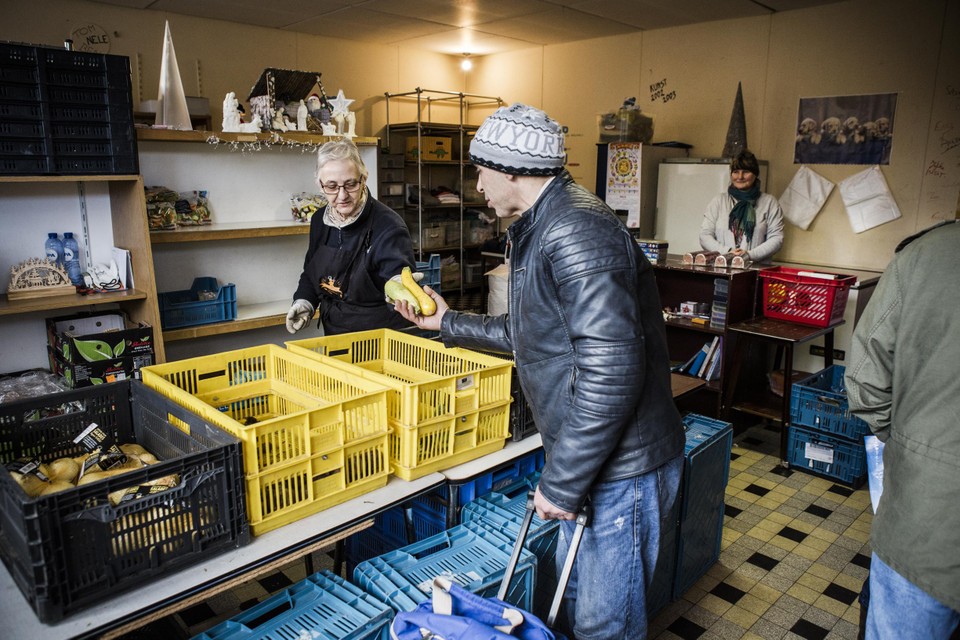Due to high inflation, energy costs and the aftermath of the Covid-19 pandemic, more and more people in Belgium have to rely on government support and food banks. It is no longer only the poorest in the city, but also middle-class people that can no longer afford groceries.
Last year, a record of nearly 180,000 people per month were in need and appealed to the food banks. That number is likely to continue to rise for the rest of 2022, due to high living costs and energy prices, Bruzz reports.
In recent months, the situation in Brussels has been deteriorating, according to the Sint-Vincensius association that distributes food parcels. The beginning of this year saw a 15% increase in distributed parcels compared to pre-Covid times.
The 34,000 food parcels that were distributed have also been delivered to different types of people: “What is striking is that new profiles have been appearing in our collection points since the end of last year,” says Frederick De Gryse, General Manager of the Sint-Vincensius Association.
“In addition to Ukrainians, many freelancers, single mothers, people from the cultural sector and many other middle class people have arrived.”
Fear of the stigma?
However, for the majority of newcomers, that does not come without feelings of guilt and fear of stigma, Bruzz found when speaking to people at the food bank collection centre in Schaerbeek.
54-year-old accountant Karel is ashamed that he is going to get a food package, as he does not want to take the place of the poorest of the poor. “For months when I can afford it, I don't go to the food bank; others need it more.”
Marie (52), a single mother of two dependent children, wholeheartedly agrees. “I am a working woman, have an income, have all the papers and yet I have to go to the food bank. I feel like I'm taking something from people who need it more.”
Anton, a retired man of 67, struggled with the same feelings and resorted to only using what he needs: “I often get too much for myself, and I give my surplus to the Ukrainians, who need it more than I do.”
At the same time, newcomers are ashamed for having to visit the food bank. “My worst nightmare is that someone would recognise me in that row,” Karel says. He realises there is much stigma surrounding poverty, meaning he does not talk about it with anyone.
Related News
- How teleworking has increased inequalities in Brussels
- Brussels inequality exacerbated by Covid pandemic
- Brussels faces post-pandemic 'social emergency' for employment
Marie feels the same way since her living costs became so high she has no choice but to collect her groceries from the food bank. Still, shame reigns: “I fear that I will be looked at in that line.”
More demand, less supply
The situation is bound to continue getting worse. “The number of middle-class people is likely to increase in the near future,” says De Gryse.
In the Schaerbeek collection centre, the number of distributed parcels increased by 200 in a month, from 800 in April to 1,000 in May.
“Every month, more and more people are knocking on our door. It’s hard for us to keep up,” said Cédric Droyers, president of the centre in Schaerbeek.
In contrast to the increasing need for food aid, the number of donations of surpluses from the food industry decreased by 11% compared to 2020.
“Grocery stores donate much less than in the past. Companies are buying more products on demand and less in stock,” said Droyers. He estimates a 30% drop in the number of donations, though there are no official figures on this.
“In addition, commercial players such as Too Good To Go (an anti-waste app) complicate things further. Supermarkets would rather sell their surplus than donate it to the food bank.”

